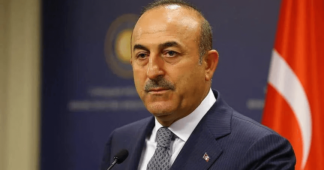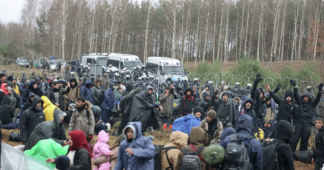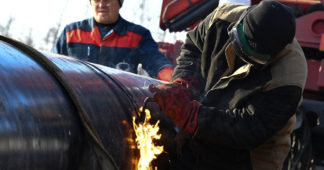by Mar 23, 2023
UN Secretary-General António Guterres is attempting to persuade the European Union to lift sanctions on the Belarusian fertilizer industry but is making little progress, according to Politico. The UN believes removing the export restrictions will help get more agricultural products to Africa. However, the EU claims the sanctions are key to applying pressure on Belarusian President Alexander Lukashenko.
Guterres traveled to Brussels on Thursday in an effort to secure an agreement with European diplomats to lift sanctions on potash, a type of fertilizer. Politico notes that his proposal to reduce hunger will not be accepted by the EU. “There is no way we will agree to derogate sanctions on Belarusian fertilizers,” an unnamed European diplomat told the outlet.
The country most responsible for keeping the sanctions imposed is Lithuania. “The idea is to reach a similar agreement [to] the one that we had on the Russian sanctions, [but] Lithuania is making it a bit difficult for the moment,” a diplomat said. Vilnius has the support of the other Baltic states and Warsaw.
“[Lithuania] argues that allowing Belarusian fertilizers to flow through the EU would hand a lifeline to Lukashenko’s fiefdom but do little to alleviate food insecurity,” Politico reported. Before sanctions were applied, fertilizer was Belarus’ second biggest export and was shipped through Lithuanian ports.
Brazil and West African countries are some of the nations which depend most on Belarus for fertilizer. One European diplomat says the countries have used “ingenious” methods to “circumvent” the sanctions. Prior to being blacklisted, Belarus accounted for 20 percent of the global potash supply.
Turkey and the UN brokered an agreement between Kiev and Moscow last year to allow the export of agricultural products from Ukraine’s heavily mined Black Sea ports.11 million tons of goods have been shipped from Ukrainian ports under the deal which was extended for the second time last week just before its expiration date.
According to Moscow, the deal is only being extended for two months and may not be renewed again as the US-led sanctions blitz is interfering with the export of Russian agricultural goods including fertilizer, despite ostensible exemptions. The Russians contend that the separate agreement with the UN which was supposed to alleviate these pressures has not succeeded.
Vassily Nebenzia, Russia’s ambassador to the UN, recently admonished the Security Council that the international organization must recognize it has “no leverage to exempt Russian agricultural export operations from Western sanctions.” He added, “If Brussels, Washington and London are genuinely interested to continue the export of food from Ukraine through the maritime humanitarian corridor, then they have two months to exempt from their sanctions the entire chain of operations which accompany the Russian agricultural sector.”
Unless this impasse is resolved, the intransigence of the anti-Russia coalition in Washington and Europe may cost the global south many lives during the coming months. For example, drought stricken Somalia – where 43,000 people, mostly young children, starved to death last year – imports 90% of its grain from Ukraine and much of the population is currently facing famine.
We remind our readers that publication of articles on our site does not mean that we agree with what is written. Our policy is to publish anything which we consider of interest, so as to assist our readers in forming their opinions. Sometimes we even publish articles with which we totally disagree, since we believe it is important for our readers to be informed on as wide a spectrum of views as possible.











